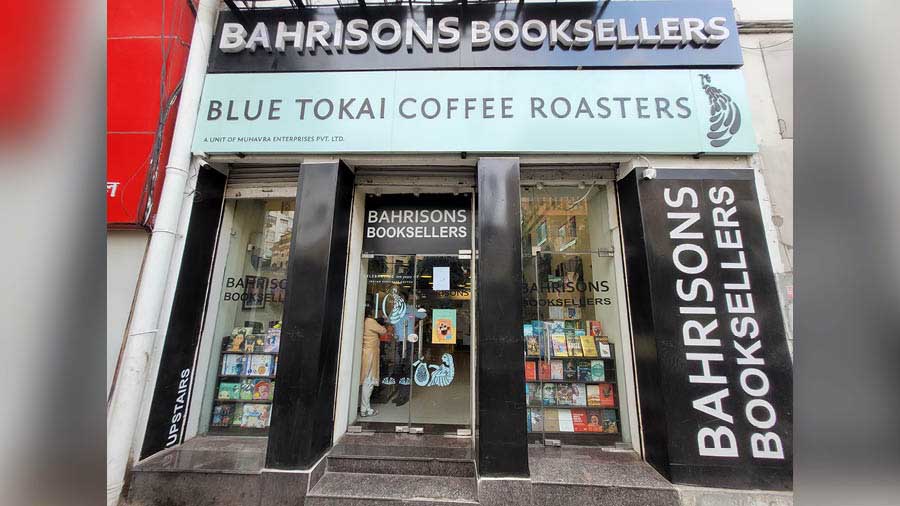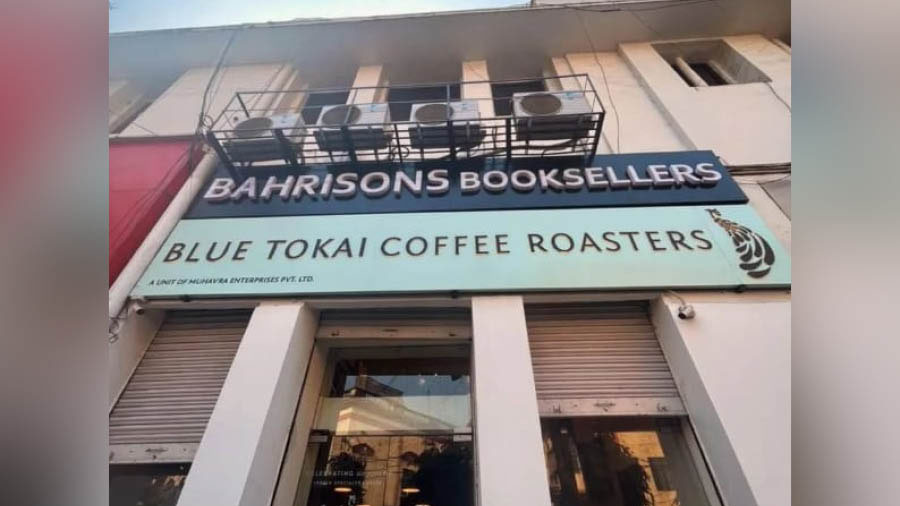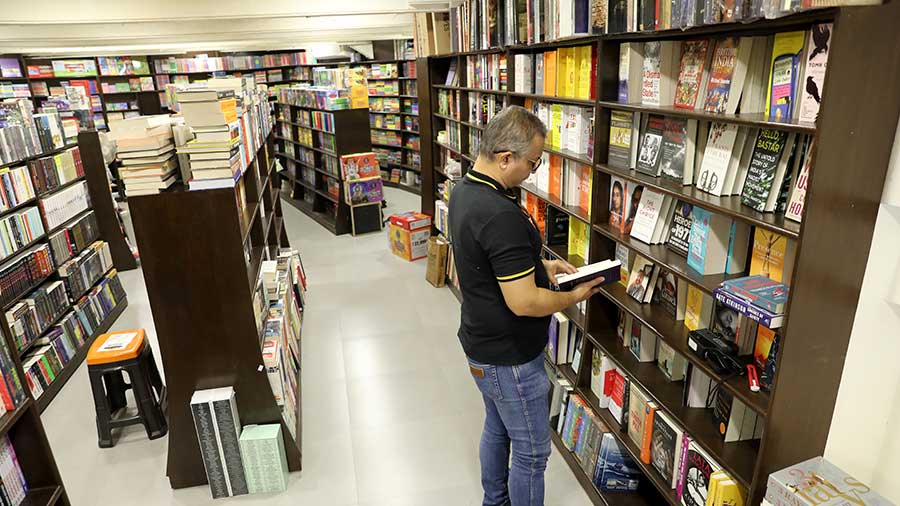In his book The Black Swan: The Impact of the Highly Improbable, Nassim Nicholas Taleb, a Lebanese-American scholar, statistician, and essayist, makes mention of Umberto Eco’s large personal library. Staggered by the sight of thirty thousand-odd books, many of Eco’s visitors would exclaim to him, “Wow! Signore professore dottore Eco, what a library you have! How many of these books have you read?” But another much smaller minority, writes Taleb, understood “that a private library is not an ego-boosting appendage but a research tool.” Read books, he says, are far less valuable than unread ones. “The more you know, the larger the rows of unread books. Let’s call this collection an antilibrary.”
Ideas like these have only corrupted me. They have fed my instinct to buy stacks of books every time the going gets tough. To me, bookstores are sanctuaries. The knowledge they offer often leaves you curious and humbled. At any point, they are a reminder of what you don’t know, but good bookstores also make available books that illuminate and bring comfort. Ever since I was a teenager, I have found the buying of books therapeutic. I have never had the time or attention to read one half of my library, but the prospects of another pandemic and eventual apocalypse make me think I am better prepared.
Having spent some of my adult years in Delhi, I have willingly given Bahrisons Booksellers the fraction of my salary I would earmark for recreation. Even though I usually economise my nostalgia, there have been times when I have yearned to meet Mithilesh Singh, Bahri’s Khan Market store in-charge. Mithilesh knows my reading habits the way my psychoanalyst knew my dreams. Earlier this year, when I last met him, I bought all the books Mithilesh had recommended. Books like Pico Iyer’s latest, The Half-Known Life, I would have perhaps found elsewhere, but holding a copy of The Tablet of Destinies, a Roberto Calasso book that was published a year after his death in 2021, felt both electrifying and providential.
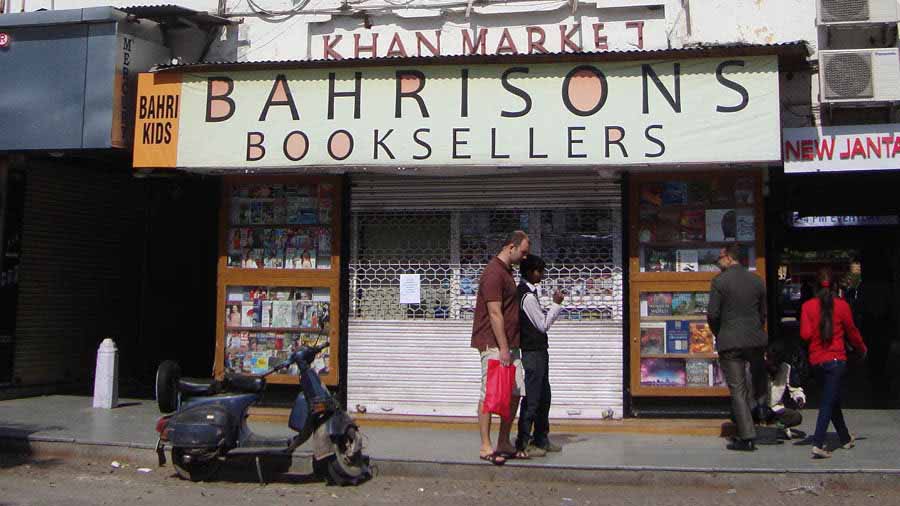
Bahrisons Booksellers’ iconic Khan Market store in Delhi Wikimedia Commons
Mithilesh has been selling me books since 2005, the year I moved back to Delhi and began enjoying the rewards of monthly income. He and I speak in shorthand. When I told him I enjoyed The Penguin Book of Indian Poets Jeet Thayil has edited, Mithilesh came back with The Oxford Anthology of Modern Indian Poetry Vinay Dharwadker and A.K. Ramanujan had compiled. Seeing my face light up, he added to the pile I was holding The Collected Essays of A.K. Ramanujan. I remember Mithilesh for his kind gestures — his talent for empathy, his unfailing joy, and those sudden, impromptu discounts.
I left Delhi in 2013, but my mind still associates the capital with the abundance of Bahrisons. Neither in Mumbai, where I lived from 2015 to 2019, nor in Kolkata, the city I finally moved back to, did I find a bookstore that felt as intimate. My holidays invariably took me to Delhi, and each time I returned from Bahri with bags that would threaten a fee for excess luggage. I went to Bahri to refuel. Over the years, I’ve stocked my ‘antilibrary’ with fiction and nonfiction the store has made me instinctively buy.
Bahri comes to Kolkata
Living in Kolkata, I often lamented the dearth of good bookstores. I would rely on Oxford and Starmark for bestsellers and recent releases, yes, and Seagull also made available a kind of translated international writing I was unlikely to find anywhere else, but to access more mainstream literary titles, especially foreign ones, I would have to wait for an Amazon delivery or my next visit to Delhi. Novelists like Sally Rooney and Ann Patchett were popular in Khan Market, but they’re mostly absent in Kolkata.
In February, when I heard news that Bahrisons had opened a branch in Park Street, I rushed there. Feeling like a boy who has discovered a neighbourhood candy shop, I browsed with abandon books that Kolkata had made available for the first time. In three months, I have seen the store’s collection grow from strength to strength. The international fiction shelves, for instance, have always included books by Salman Rushdie and Orhan Pamuk, but of late, writers like Rachel Cusk and David Foster Wallace have also found a place here. In the nonfiction section, you find new arrivals like Nandini Das’s Courting India: England, Mughal India and the Origins of Empire and Manoj Mitta’s latest, Caste Pride.
Speaking to me from Delhi, Anuj Bahri says, “Calcutta has always dominated high literary culture and society. For me, it made no sense that I was everywhere in Delhi but I wasn’t in Calcutta.” Before Bahri came to Kolkata, he was already running seven stores, six in the NCR region and one in Chandigarh. In the book trade ever since his father Balraj opened his first flagship store in Khan Market in 1953, Bahri, 60, says his decision to open a branch in Kolkata was inevitable. “We have been in Delhi for such a long time. I really wanted to come to Kolkata in our 70th year. I am not from Calcutta, but I do want to make it my city. I want to understand the people. To know their preferences, I feel I need to know them first.”
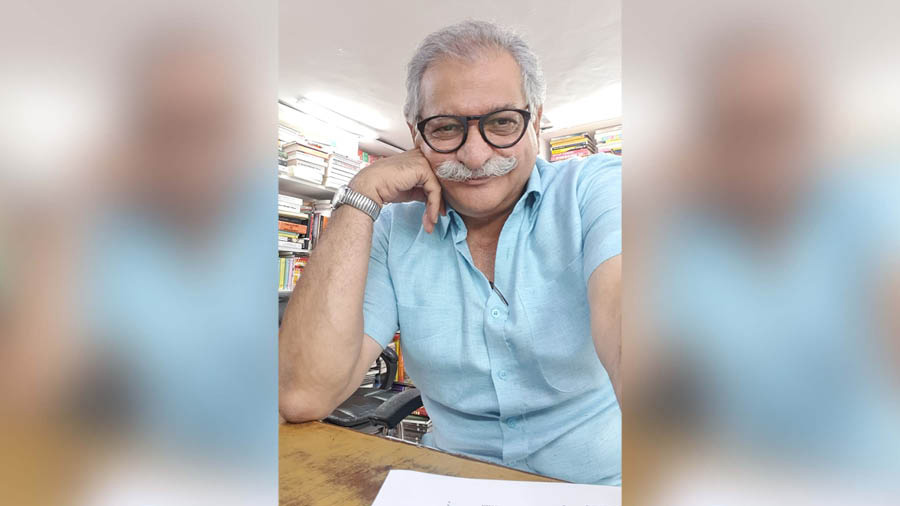
Anuj Bahri wants to become a part of Kolkata’s culture by opening more bookstores here
Bahri believes that his collection of books sets him apart from his competitors. “We do not curate the collection ourselves. We let our customers curate it for us. What you want is what we try and showcase. We have always listened to people. We try and bring what they want.” Jayati Basu manages Bahri’s Park Street outlet. Though she insists she loves all aspects of her job, everything from ensuring the air-conditioning is working at full capacity to checking if the floors are clean, the high point of her days, she says, is being able to look after customers. Basu was recently able to source for a reader a copy of Deepak Dalal’s Ranthambore Adventure: “He had looked for it everywhere, but after he told me about this, I spoke to the author and got him the book in a day. It felt really good to have made him so happy.”
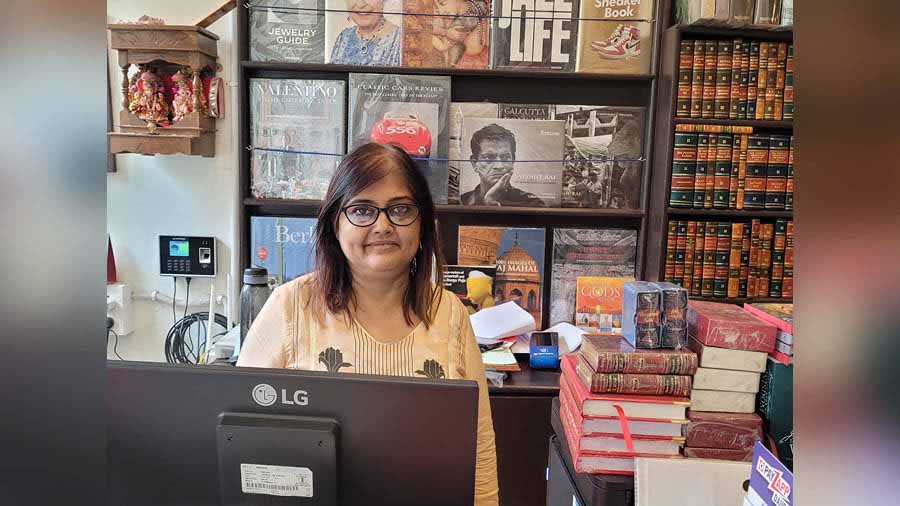
Park Street store in-charge, Jayati Basu, pays close attention to her customers’ wants Shreevatsa Nevatia
The customer, Ritojit Dasgupta, later took to Instagram to thank Basu. “In an age when good and honest bookstores in Kolkata are closing down, it is really a blessing to have new bookstores with honest and helpful people like this,” he posted. Beepsa Biswas, Bahrisons’ social media manager in Kolkata, says, “At Bahri, we want you to come in and ask for books and recommendations. When you go to College Street, you go there with a list, but Bahri gives you a chance to discover. We want to bring in that personalisation, those one-on-one conversations. No one else here offers such an experience.”
Familiarity breeds contentment
One is perhaps bound to feel biased toward bookstores whose salespeople know your name. The last time I walked into Bahrisons on Park Street, it didn’t take long for Sikendar Kumar Rai to recognise me. Rai, who has been a Bahri employee for 17 years, has helped set up several of its bookshops, in Vasant Kunj, Gurugram, Chandigarh, and now Kolkata. Having been privy to some of my buying sprees, he immediately brings to me titles he thinks I will like, but seeing I am intent on reportage, not retail, he takes a chair and says, “If you ask me, Kindle is a fad. So many of our customers start reading books on a device, but after they do that for a few years, they eventually come back to us for physical books.”
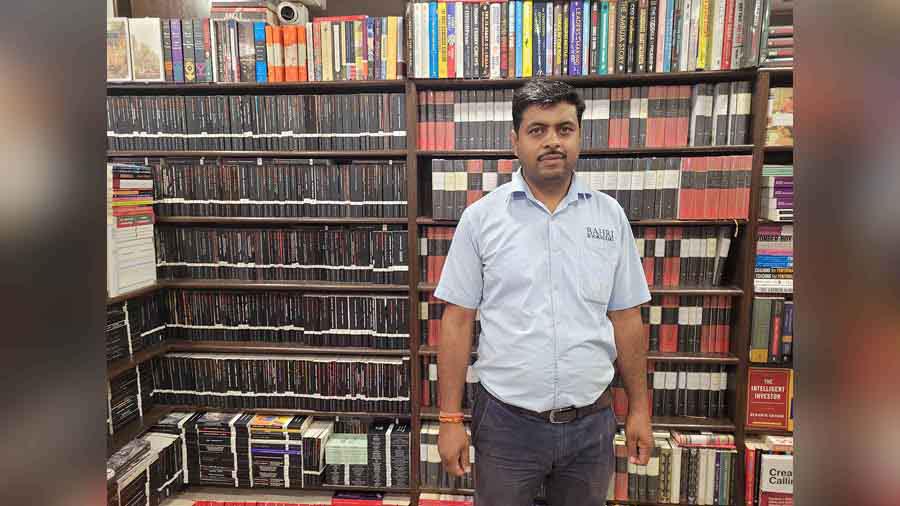
Having worked at Bahrisons for 17 years, Sikendar Rai has helped set up stores in Vasant Kunj, Gurugram, Chandigarh and Kolkata Shreevatsa Nevatia
For Rai, customer behaviour is research: “We try and gauge the interests of our customers. If you come to a Bahri store and buy 10 books, we will try and make a note of the subjects that interest you. What are you more drawn towards, fiction or nonfiction? We will keep this in mind when we serve you the next time.” It is perhaps Rai’s politeness that makes his suggestions feel like inception. He isn’t just interested in making a sale. He seems to know that for you buying books is a quasi-religious experience.
At Bahrisons’ Khan Market store, I have sometimes shopped alongside politicians like Kapil Sabil and Amar Singh. Once, in the early 2010s, I have seen Singh get packed at Bahri a bundle of more than 20 books. “His minimum billing was usually Rs 40,000 to Rs 50,000,” smiles Rai. After working with other bookstores such as Midland and Full Circle in the first years of his career, Rai says he has enjoyed at Bahri a freedom that is hard to compare: “Our customers are our responsibility. We do whatever we need to source their books. At Bahri, what matters most is the kind of service we give our customers.”
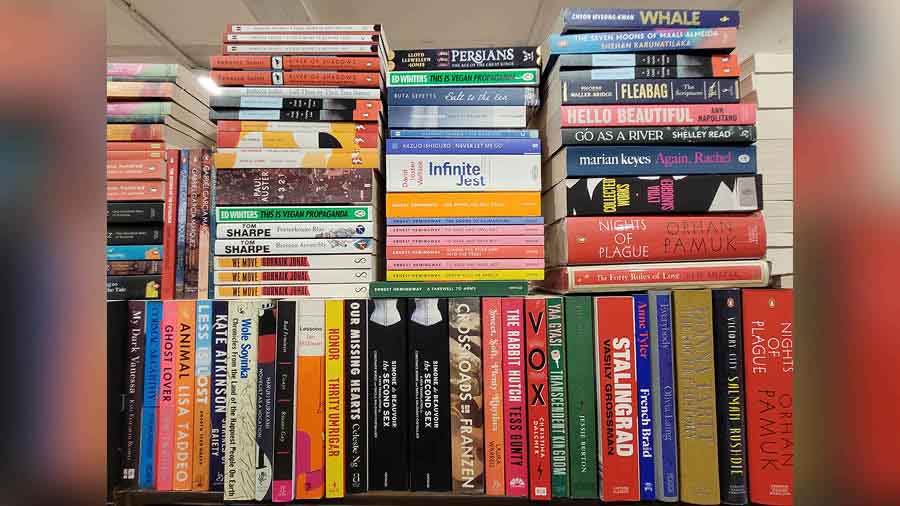
Bahri’s international fiction shelves have always included books by Salman Rushdie and Orhan Pamuk, but writers like Rachel Cusk and David Foster Wallace also find a place here Shreevatsa Nevatia
Anuj Bahri prizes the bond his staff comes to share with his customers. “Technically, these are the people who look after our stores. I could very easily rent out the properties I own and have a cushy living, but there are 70-80 people who work with us. How would their families survive? As a bookseller, I am obligated not just to customers for whom I want to bring a good collection, but I also have an obligation to look after my team.” Bahri advocates giving employees a portion of one’s profits: “Every member of my staff has a minimum of five people to look after. I see no reason why their families cannot survive in a proper manner. Ours is a successful partnership. I’m happy I can look after my staff.”
More Bahris coming soon
Though Jayati Basu feels that Bahrisons fills a vacuum in literary Kolkata, the Park Street branch in-charge complains that compared to Delhi, fewer people in the city buy books: “Customers here like to browse more. In Khan Market, for example, many people walk in already knowing the books they want to buy.” Sikendar Rai, for his part, feels that not everyone in Kolkata knows the store exists. “Our Delhi customers have all heard about this outlet. They have paid us a visit, but we need more locals to come.”
Anuj Bahri tells me his Park Street branch is yet to break even. “Sales are still very limited, but I know it will take some time for people to organically become aware of our collection.” The Blue Tokai café on the ground floor, says Bahri, helps sustain him while the store takes some time to establish itself. For Bahri, his Park Street address felt ideal: “It did not need an introduction. It had metro connectivity. We’re at the cusp of Chowringhee and Park Street. The metro comes right there, but this is just a start.”
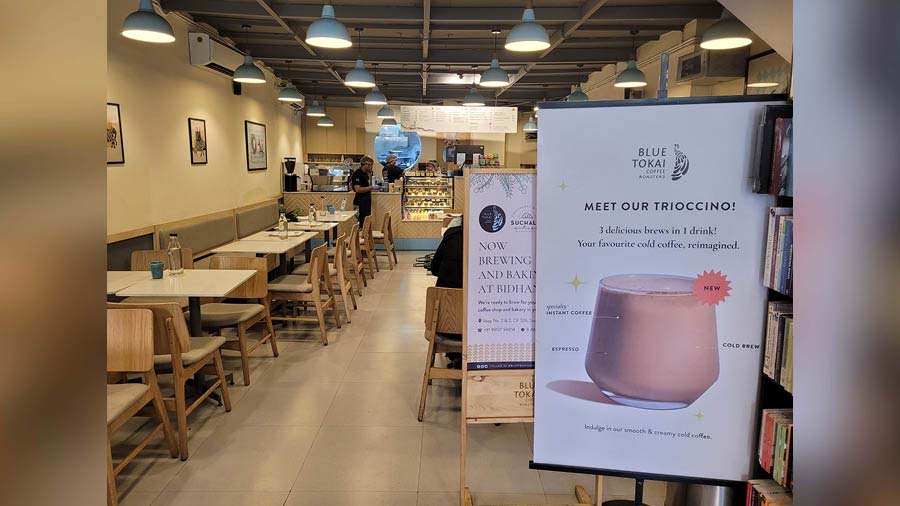
As its customer base grows organically, Bahrisons’ Park Street branch relies on its ground-floor Blue Tokai café for sustenance Shreevatsa Nevatia
Surprisingly, Bahri already has plans to open another store in Kolkata. “I would ideally like to open Bahri in a place which is less chaotic, where I have some parking space. I don't want to go into a mall. I prefer to be on the street. Let us see where fate and the city take us.” Bahri did not want to disclose details of a location he recently liked, but he spoke of Kolkata’s streets — Camac Street, Elgin Road, Southern Avenue — with a resident’s familiarity. In the eight months since he has been visiting the city, he has sampled the city’s culture through its mishti and chamcham, “but I now want to be a part of it”.
It isn’t just his affection for Kolkata that makes him want to build a book collection for its people. When asked where he found the courage to expand at a time when more bookstores seemed to be closing, Bahri rubbished the claim that there are not enough readers in the country. “The problem is that the wants of people who run these businesses have become very high. There is this run for money. I’m a bookseller, and I can tell you there is enough money in bookselling to give you a respectable livelihood.”
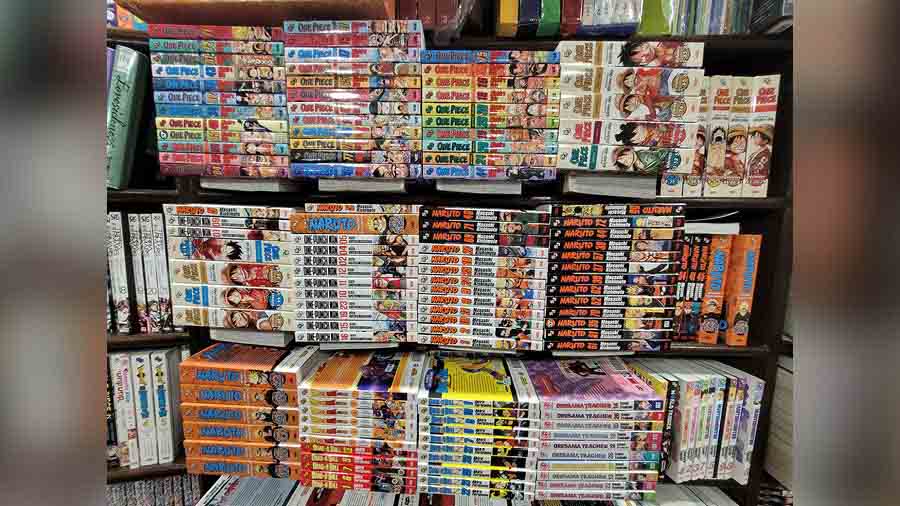
After several Kolkata customers demanded more manga comics, Bahrisons has tried to make available most of the manga catalogue Shreevatsa Nevatia
Given the extent of Bahri’s experience — he started working for his father in 1979 — you take his claims seriously. The average age for a person to get into nonfiction, he says, has come down to 30 from 45. “Some Bengali publishers are also publishing 5,000 copies in their first print run. There is obviously a market for them. If you look at the book in all its digital and physical formats, you will see collective readership has increased by 30-35%. These are proud times for booksellers.” Bahri’s enthusiasm for books is infectious, yes, but it is capacious first. It has enough space to make Bahrisons feel like home.
